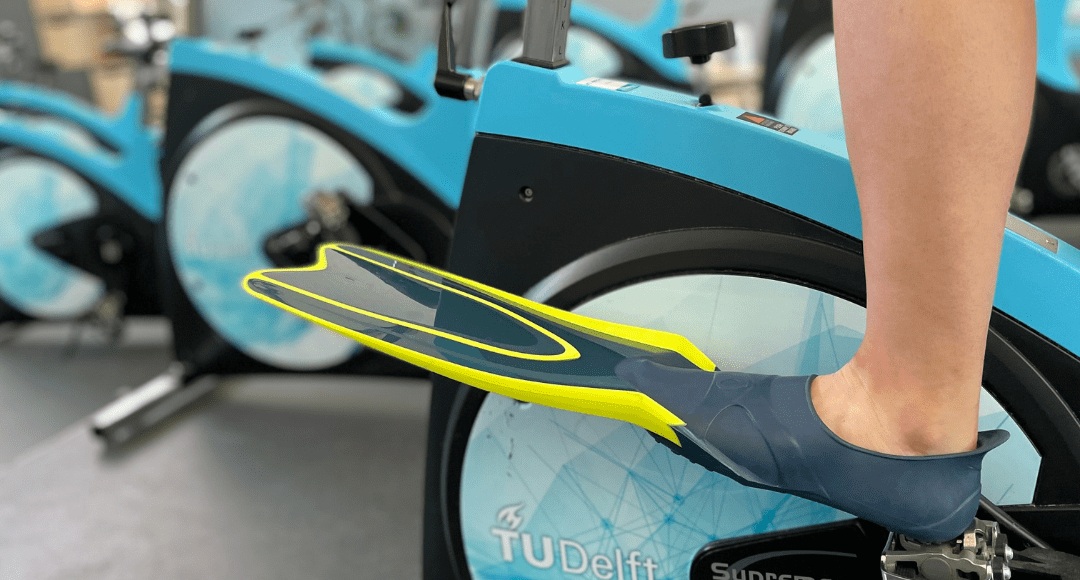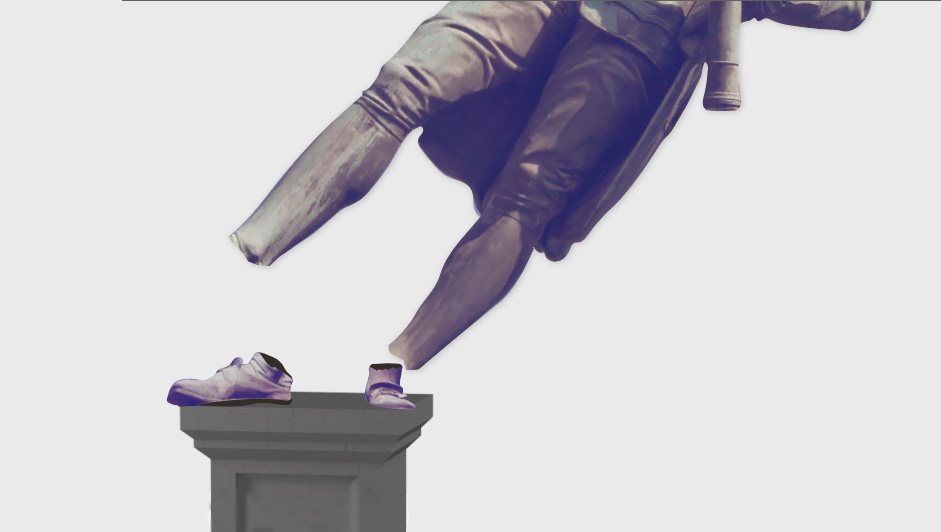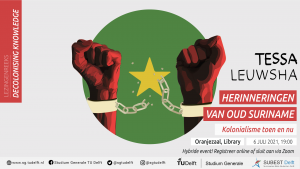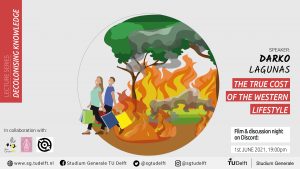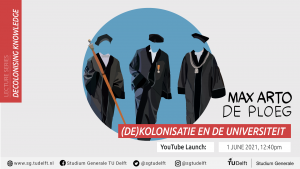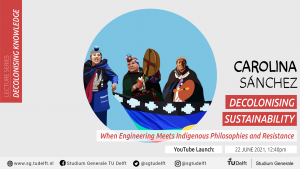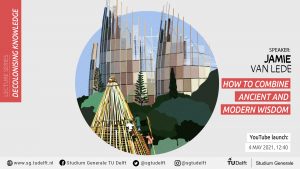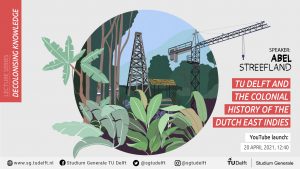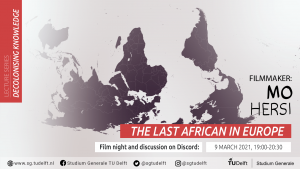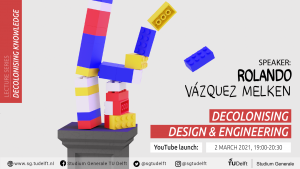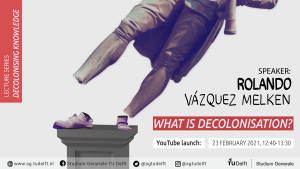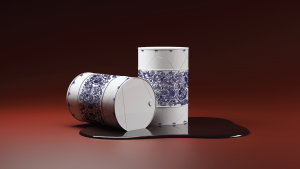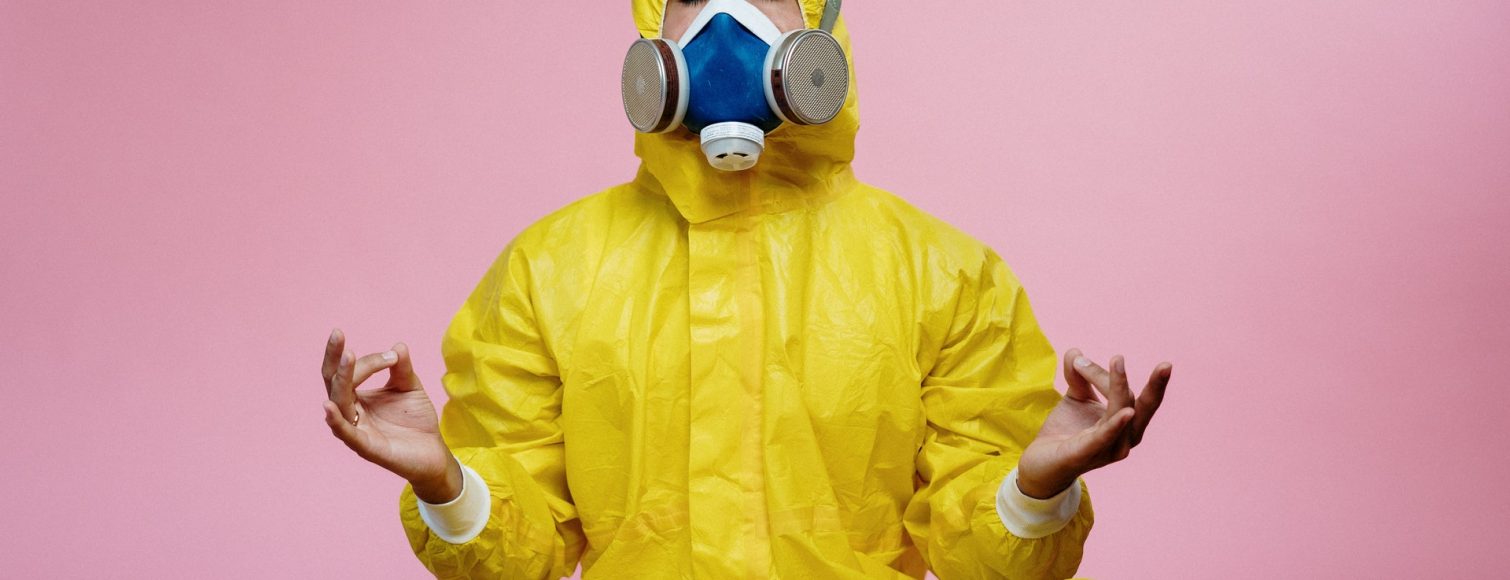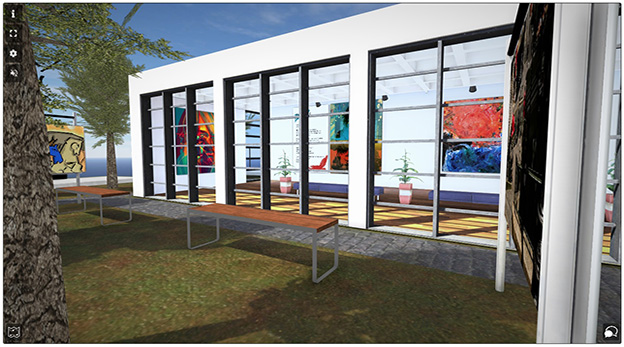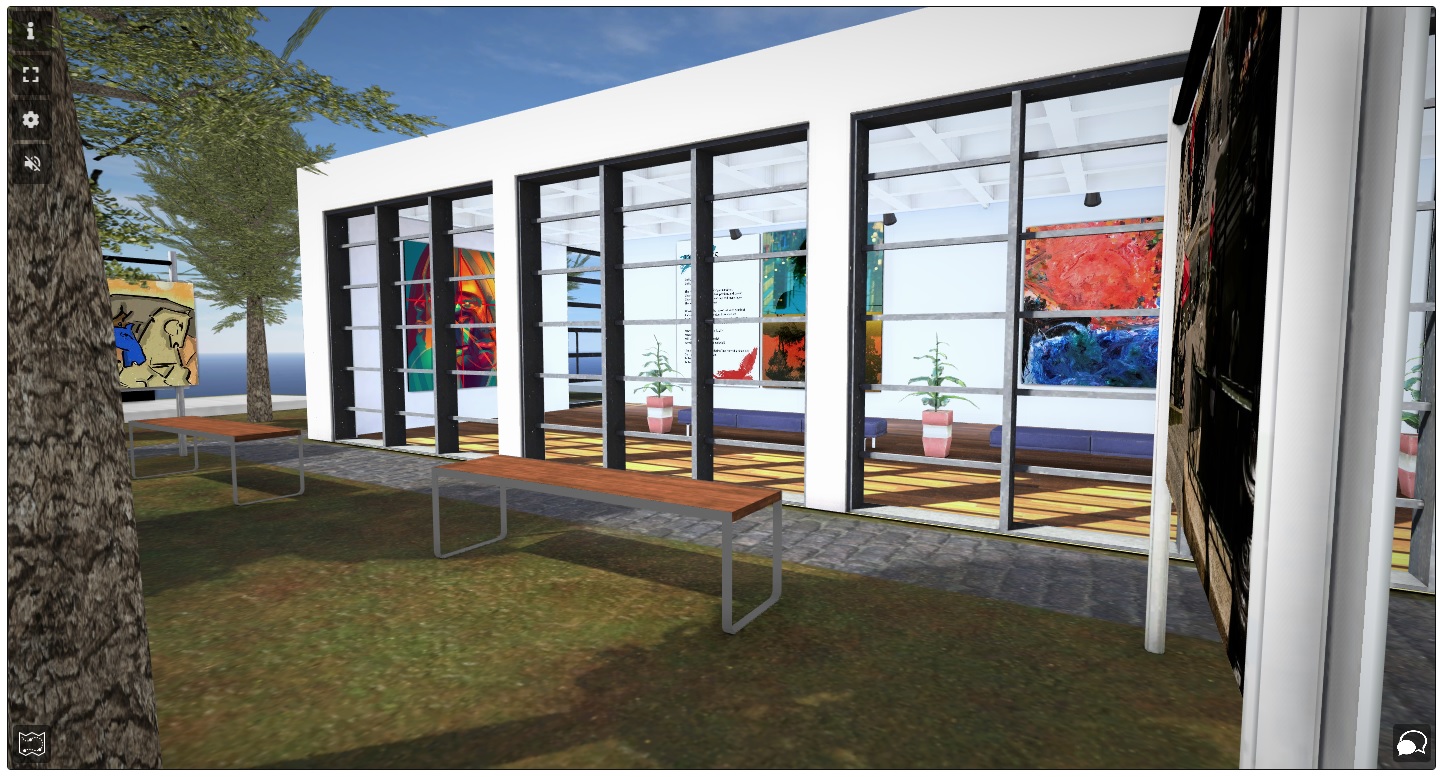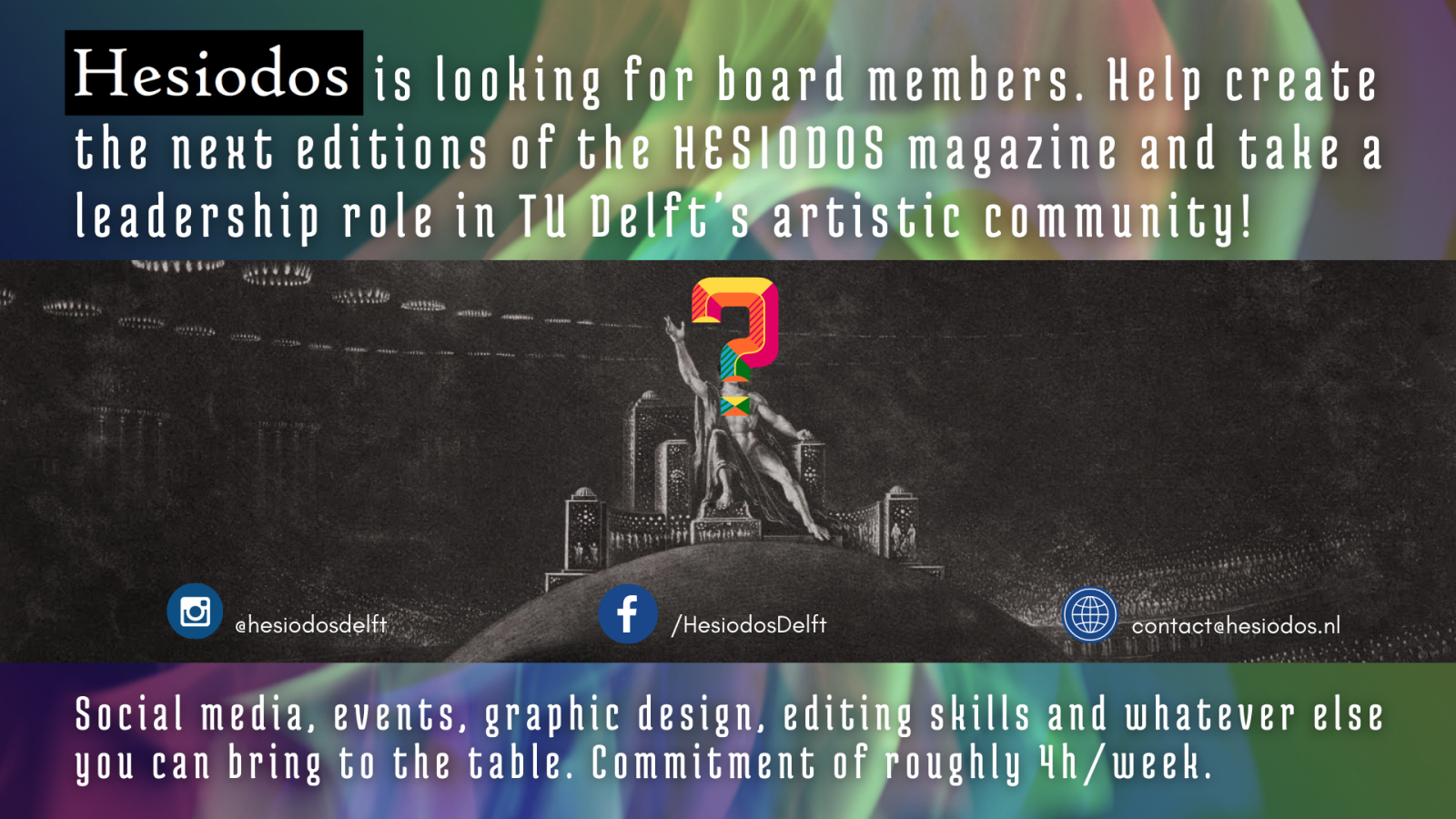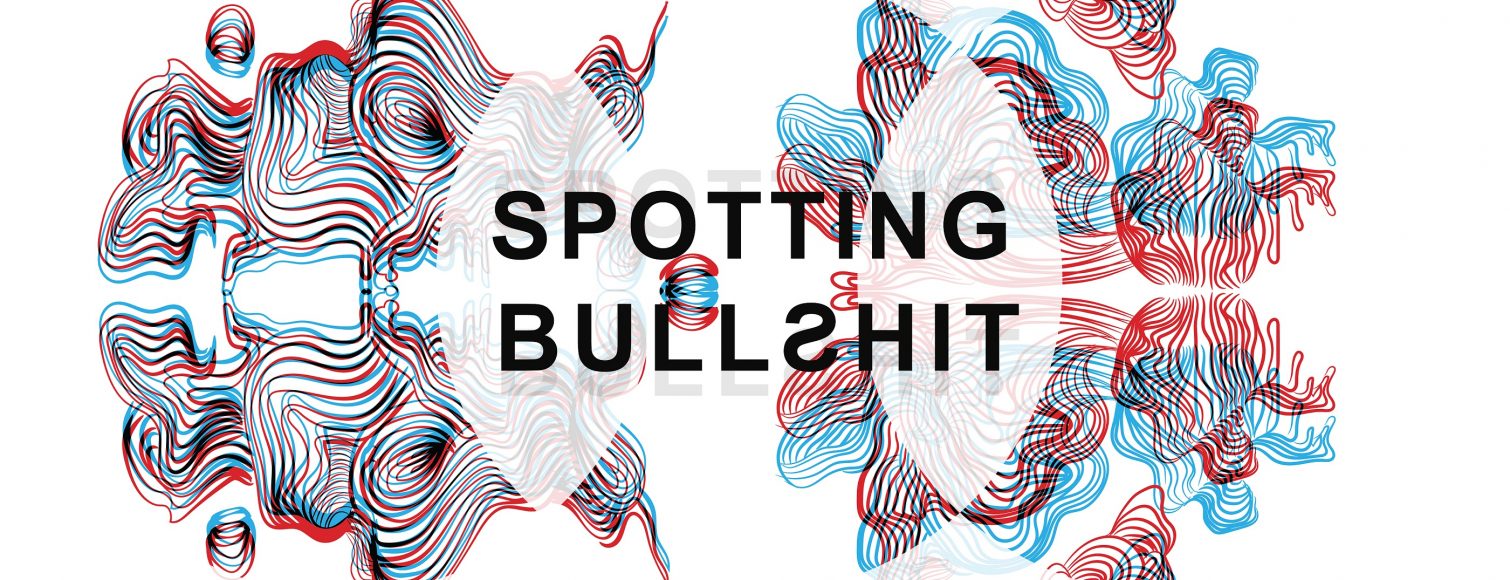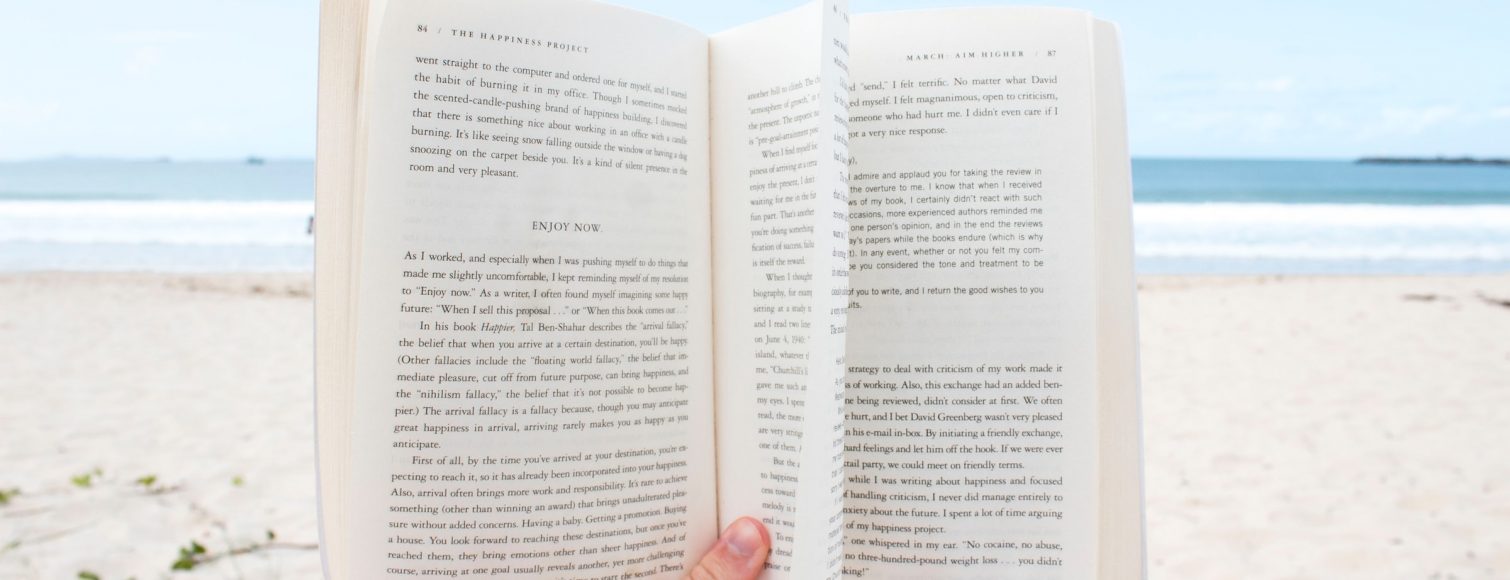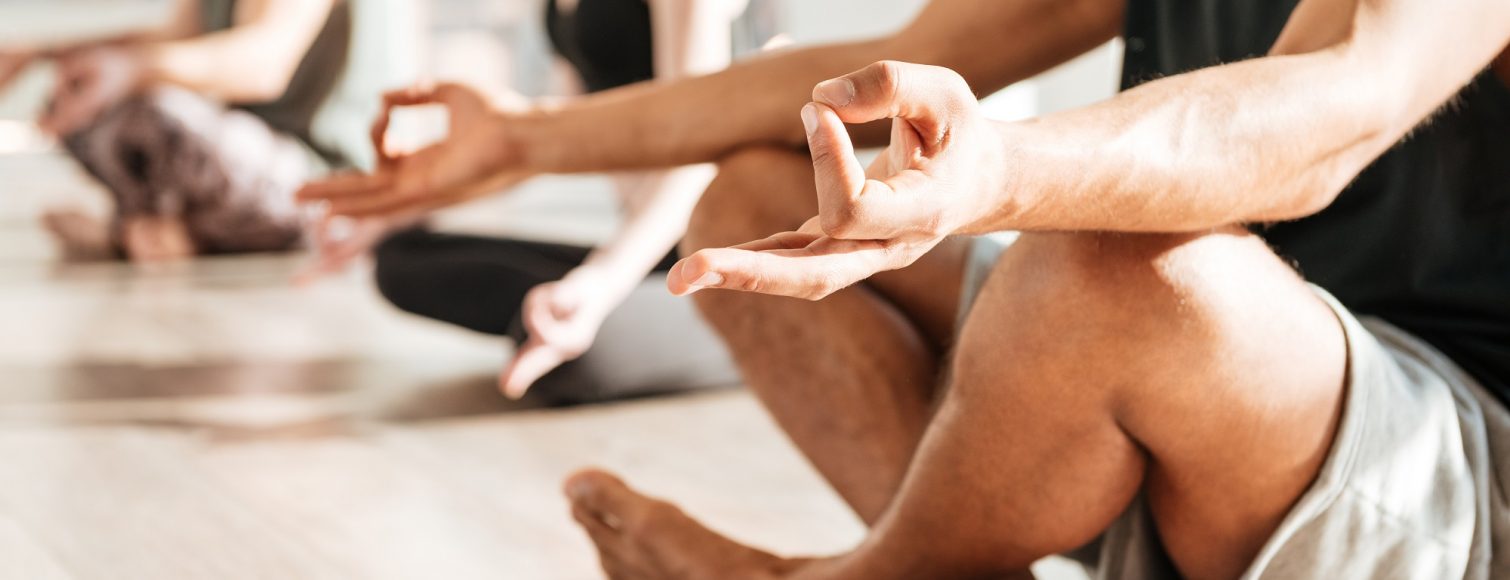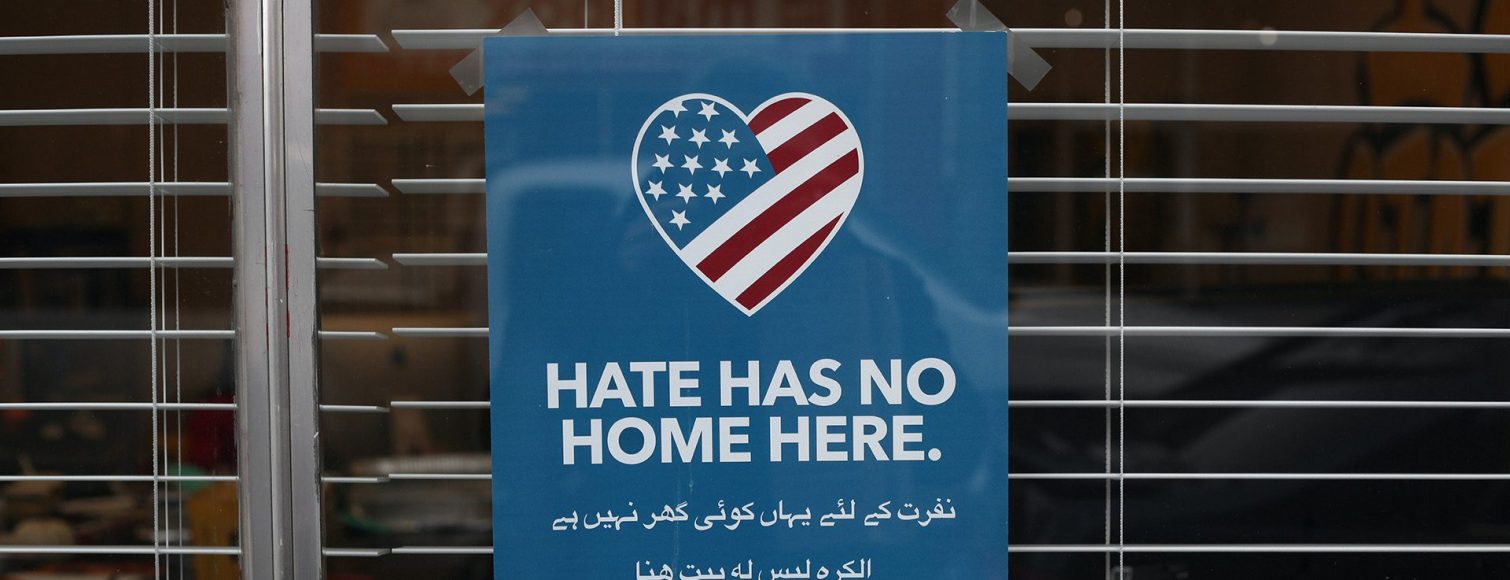This series of events explores the legacy of colonial power structures in society.
The TU Delft is beginning to support increased awareness of cultural differences, inequality, and discrimination. However, it remains a mostly male, Western oriented, white community, and there are many relevant topics and issues in the realm of identity and diversity that have yet to be broached here at the academic level. By organizing a program series introducing decolonisation to a broad audience, Studium Generale aims to increase knowledge and awareness on this topic and to provide a platform for academic and social discourse at the university.
Decolonisation, roughly put, is a social movement and academic project that seeks to empower knowledge, cultures, and peoples marginalized by the physical and cultural effects and legacies of colonization and its power structures. This movement also reflects critically on the historical role of universities and Western knowledge production in relation to colonialism. It encompasses issues of race, gender, land ownership, ways of knowing, reparations, resource extraction, rights and representation, and more. From Wikipedia:
Decolonisation of knowledge (also epistemic or epistemological decolonisation) is primarily an intellectual project that challenges the hegemonic Western knowledge system with its claim of universality.
This SG series will consist of a lecture series introducing the decolonial perspective and its application in technology, education, nature, sustainability, arts, and industry. There will also be numerous satellite events; master classes, a film night, and discussion groups. Want to know more about decoloniality? We’ve prepared a list of reading and viewing materials to help you along!

Decolonising Knowledge Reading list SG TUD (Pdf file)
Past events in this series:
What is Decolonisation? | Rolando Vázquez Melken
Decolonising Design & Engineering | Rolando Vázquez Melken
Film Night: The Last African in Europe | Mo Hersi
Coming events in this series:
TU Delft and the Colonial History of the Dutch East Indies | Abel Streefland
How to Combine Ancient and Modern Wisdom Today | Jamie van Lede
(De)Kolonisatie en de universiteit | Max de Ploeg
Decolonising Sustainability | Carolina Sánchez
Traditional Ecological Design | Antoin Deul
Decolonising Our Relationship With Nature | Antoin Deul
Keti Koti | TBA
Non-Western Philosophy | TBA
Decolonial Art Workshop | TBA
Decolonisation, roughly put, is a social movement and academic project that seeks to empower knowledge, cultures, and peoples marginalized by the legacy of colonialism and its power structures. This movement also reflects critically on the historical role of universities and Western knowledge production in relation to colonialism. It encompasses issues of race, gender, land ownership, ways of knowing, reparations, resource extraction, rights and representation, and more.
The program will consist of a core of lecture series introducing the decolonial perspective and its application. There will also be numerous satellite events with master classes, a film night, and discussion groups.
The Decolonising Knowledge series will be launched as pre-recorded lectures on YouTube on select Tuesdays in February, March, and May 2021. Live online discussion sessions will be organized on Tuesday evenings via VOX Delft, the open discussion platform of the TU Delft. You can join them for free through the VOX Discord server here. Download the Discord app beforehand (also free) if you want to be able to see other peoples’ video.
Need some help getting started with Discord? Here’s a manual (.PDF) with tips.

